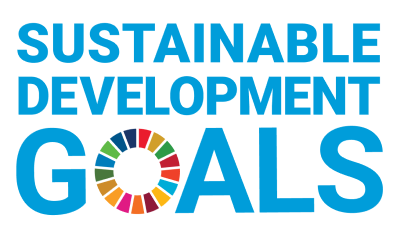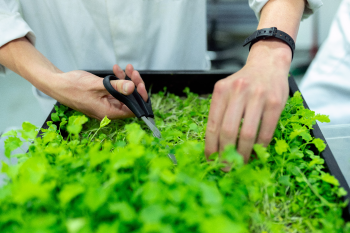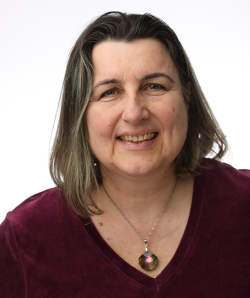You are here
- Home
- Blog
- What is most important when integrating ‘green skills’ and sustainability topics into learning and teaching strategies?
What is most important when integrating ‘green skills’ and sustainability topics into learning and teaching strategies?

While the 17 Sustainable Development Goals (SDGs) were adopted by world leaders in 2015 at a UN summit, they came into force officially in January 2016. At that time, I had been searching for sustainability-centred resources enabling teaching on ‘green skills’ since I returned to academia from running my own business in 2014. I found a lack of suitable practice informed teaching materials, and as a result, I created my own textbook – discussing how to create the sustainable start-up, with a practice-led approach (Hill, 2015).
Excited by the common goals and shared language contained in the SDGs and their 169 targets, I was surprised at the small amount of teaching resources for SMEs and learners (school and university level). Hence, with a colleague, I devised a book chapter (Hill and Scott, 2020) discussing four cases in detail, to demonstrate responsible, green and ethical business behaviour and business operational set-ups, that were tangible and reasonably costed – possible to realise for other businesses.
Mainstreaming means for me that it is not sufficient to have one module discussing green skills or the SDGs, but rather, all modules need to address some aspects with a strategic co-ordinated approach (Hill, 2020).
The rationale for mainstreaming this knowledge is that the future is green! The Future of Work (Deloitte, 2021) has new job profiles and changing job profiles, which require staff with a changed mindset and skills in managing change and knowledge for the ‘green transition’ to a more sustainable society and economy.
I concluded that high level frameworks from various sources are helpful. However, as I learned very quickly in discussions with colleagues, they do not create a common understanding for academic teachers to agree on how to integrate the SDGs into curricula and what language to use. And, new fit-for-purpose teaching materials take time to create.
Mainstreaming into undergraduate and postgraduate curricula – different or the same?

To integrate SDG learning, I changed assessment, teaching and learning strategies, as well as learning materials, simultaneously for undergraduate and postgraduate (UG and PG) learners, and noticed that both learner groups have similar learning needs. While some UG students might also have to learn the basics of business, PG learners’ understandings of the SDGs, and how to address their targets in their respective jobs and businesses was, in 2020, as under-developed as that of undergraduate learners, and I could use many materials for both learner groups. For the PG learners, I added more detail and depth on the guiding and effort needed.
When in 2022, I also integrated net zero into learning and teaching materials for two Master’s and MBA modules, I had a similar experience. The enthusiasm by learners to discuss net zero did not translate into voluntary use in the assessment, even for those working in relevant industries in the early stages of net zero transition (e.g. manufacturing, construction, transport).
Based on student feedback, how did this change my approach?
Students taught me three insights to help them engage more with the SDGs:
Insight 1: We need you to help us see how we can address the SDG targets.
This insight meant that they needed to overcome the initial reactions of managers or staff and the learners in my module that ‘it costs’ and the business cannot afford it.
Using examples of businesses that had integrated responsible business thinking from day 1 (Gudrun Sjoden, sustainable fashion manufacturer, for example, or a micro social enterprise on localising supply chains in the West Midlands, see Hill and Scott, 2020), I demonstrated and explained that such an approach is not only possible but has financial advantages, in the short and long term. I realised that ideally changing mindsets happens first before skills and knowledge are acquired. We need the mindset that ‘green’ ways of doing business are possible as ‘a default’. I started using GreenComp, a European competence framework that discusses four competence areas and 12 competences (Bianchi et al., 2022). The four areas are:
- Embodying sustainability values
- Embracing complexity in sustainability
- Envisioning sustainable futures
- Acting for sustainability.
The identified areas meet the goals set by the UK education strategy for sustainability and climate change (Department for Education, 2022).
Insight 2: Show it to us, show it to us, show it to us.
In 2020, and still today, there is only limited detailed case material for learners to see how businesses practically addressed the SDGs – what changes they made, and the cost of these changes. While there is a niche for new products that, e.g. are much lower in waste, use replenishable natural resources etc., the challenge lies in doing business with existing material resources and technology, as businesses are limited in how much investment they can make in new more sustainable resources at once.
Hence, I wrote four new case studies - from farming to micro-social enterprise, large multinational (family) business and international sustainable fashion company (Hill and Scott, 2020) – to offer role models for how the mindsets of founders was set-up from the business start-up, or, how company leadership developed a more sustainable approach and business model over time. The updated chapter version details how the SDG targets these case studies address (Hill and Scott (with Wahga), 2024), as learners requested this detail.
Insight 3: Make us apply it ‘safely’ – in the assessment.
I had learned from the first module assessment, that, when learning about SDGs was included informally in group work and module discussions, only two out of 36 students actually applied the SDGs in their assessment. The task was discussing how a business of their choice could operate more sustainably meeting any of the SDGs and targets they deemed suitable. I was puzzled that while the enthusiasm and engagement with the topic of SDGs had been great in class, the actual engagement in the assessment had not been.
After discussions with students about what would make them engage more with the sustainability topic they found exciting and important, I changed the assessment brief and marking grid for the following year. Once grades had then been released and many performed well, the discussion with those who engaged deeply with the SDGs demonstrated they were glad they had, as writing about meeting the SDGs had deepened their learning and confidence in using them in their firm’s context. And, more than one changed jobs and chose career paths much more closely related to sustainability in their ‘new’ jobs from the NHS to large corporations in several countries.
My top three recommendations
-
Agree on one or two sustainability models and frameworks with a teaching team, and map the learning outcomes onto the competences GreenComp (Bianchi et al., 2022) recommends, for example.
My personal learning and knowledge transfer from having taught new venture creation since 2003 was to use a competence framework that discusses skills and mindsets (researched and agreed upon). GreenComp (2022) competence framework mirrors the learning of SMEs and my own on how to create a message that ‘sticks’. The list of twelve competences creates a shared language and terms for a teaching team to develop a new or update an existing module. And share such a competence framework with adult learners, I have used the competence framework with MBA and Master’s learners to explain the relevance of concepts and case studies for developing sustainability mindsets and ‘green skills’.
-
Discuss and agree a shared understanding in the team of what ‘sustainability’ and green skills means and which SDG targets you aim to address in a module.
This fourth sustainable development goal (Quality Education) makes me get up in the morning with passion and mission to talk about how to implement the SDGs in doing business – to Build Back Better post-COVID-19 (Hill, 2021).
-
Find or develop resources that match your or the team’s aims and conceptualisations of what the module aims to deliver concerning sustainability and SDGs.
At The Open University I am sharing my learning and applying GreenComp (Bianchi et al., 2022), ‘green skills’ for sustainable action, in module production, which include competences for social change. From a workshop I ran for the British Academy of Management in 2021 on integrating the SDGs into learning and teaching strategies I learned from colleagues that they face the same challenges. Sharing and creating resources are key. The UNESCO resources might be a good starting point (UNESCO, 2021).

Conclusion
After nearly four years of engaging with the SDGs and acting for sustainability as an academic teacher, I focus now on changing mindsets as a starting point. Green skills and detailed knowledge are helpful, and most effective when learners have developed a mindset for making a difference. Once this mindset has been developed by learners, time and cost are seen less as barriers when re-considering business set-ups and business models.
What we educators struggle to achieve is a change in mindset with our learners, as we also have to dispel the myths developed in and by the media around sustainable ways of ‘doing business’. Case study learning is essential, and we need more detailed examples, written up and disseminated to achieve this new mindset.
When you see the well-known lamp ‘light up over student’s heads’ and their face shows the 'aha effect', you have won! Each change of mind is a contribution to achieving the SDGs! Mind-by-mind we can achieve the system change needed to live more sustainably.
References and further resources
Bianchi, G., Pisiotis, U. and Cabrera Giraldez, M. (2022) GreenComp The European sustainability competence framework, Punie, Y. and Bacigalupo, M. editor(s), EUR 30955 EN, Publications Office of the European Union, Luxembourg, ISBN 978-92-76-46485-3, doi:10.2760/13286, JRC128040. (Last accessed, 22-11-23 https://joint-research-centre.ec.europa.eu/greencomp-european-sustainability-competence-framework_en)
Department for Education (2022). Sustainability and climate change: a strategy for the education and children’s services systems. London: UK Government.
Hill, I. (2015). Start up. A Practice-led Guide to New Venture Creation. (London: Palgrave MacMillan, then). Bloomsbury Publishing. [discussing how to develop a sustainability mindset and business start-up, aimed at non-business students]
Hill, I. (2020) ‘Mainstreaming sustainability and enterprise education across the university’ https://www.enterprise.ac.uk/mainstreaming-sustainability-and-enterprise-education-across-the-university/
Hill, I. (2021). “Teaching on creativity and creative industries for sustainability education and UK economic recovery” https://www.enterprise.ac.uk/teaching-on-creativity-and-creative-industries-for-sustainability-education-and-uk-economic-recovery/
Hill, I. and Scott, J. (2020) Ethics and sustainability in business, Chapter 9, In: Deakins, D. and Scott, J. (Eds)., Entrepreneurship. A contemporary and global approach, pp. 200-227. London: Sage. (email: Inge.Hill@open.ac.uk for a copy of the chapter).
UNESCO (2021). Sustainable Development Goals - Resources for educators. https://en.unesco.org/themes/education/sdgs/material (last accessed 22-11-23).
Dr Inge Hill
 Dr Inge Hill is a Lecturer in Entrepreneurship at the OU Business School. She is also a team member of the B209 production on innovation and entrepreneurship, leading on the skills strategy, and co-leads a microcredential on leadership and business management.
Dr Inge Hill is a Lecturer in Entrepreneurship at the OU Business School. She is also a team member of the B209 production on innovation and entrepreneurship, leading on the skills strategy, and co-leads a microcredential on leadership and business management.
She is Director of Enterprise Educators UK and is an internationally awarded EntreComp Champion. Inge has helped shape the teaching and learning strategies in the areas of employability and entrepreneurship education since 2003, both at university and faculty level at several universities, also as Assessor for the Small Business Charter since 2019. Since 2014 she has dedicated time in teaching and learning focussing on ‘education for sustainability’. She regularly writes for the public on: entrepreneurship education, education for sustainability, green skills and has also authored various teaching resources including a published textbook.
Inge's research interests focus mainly on UK-based SMEs and business support and creative industry entrepreneurship. She has published widely, including in the International Journal of Entrepreneurial Behaviour and Research and Entrepreneurship and Regional Development. You can find her on LinkedIn.

